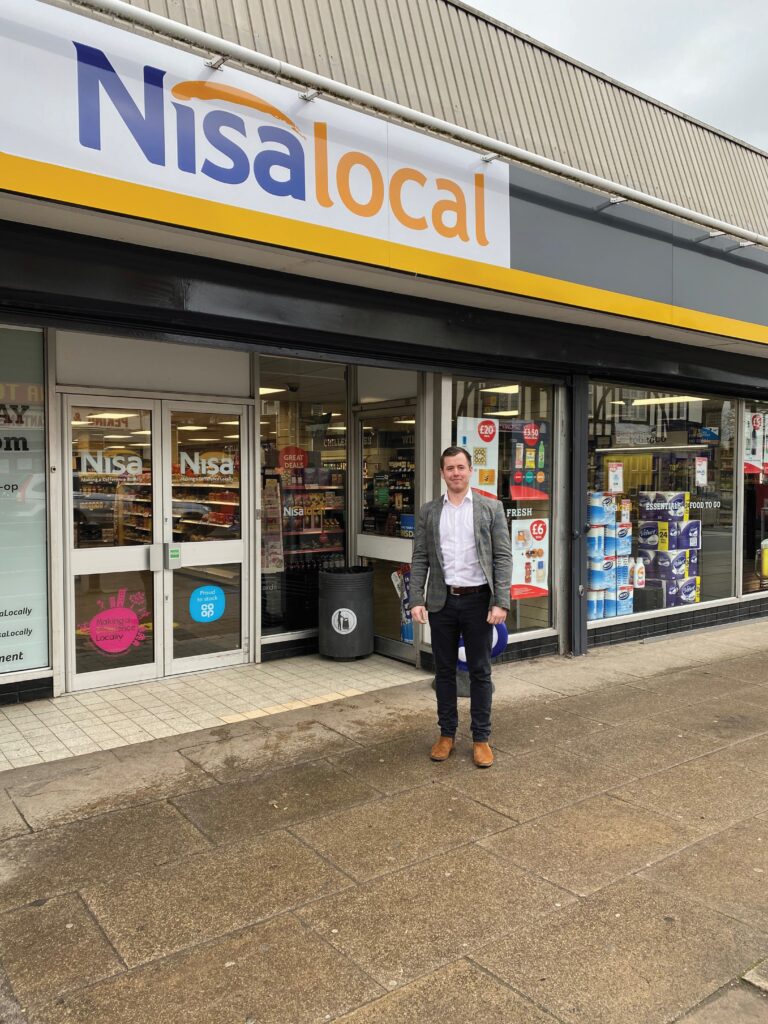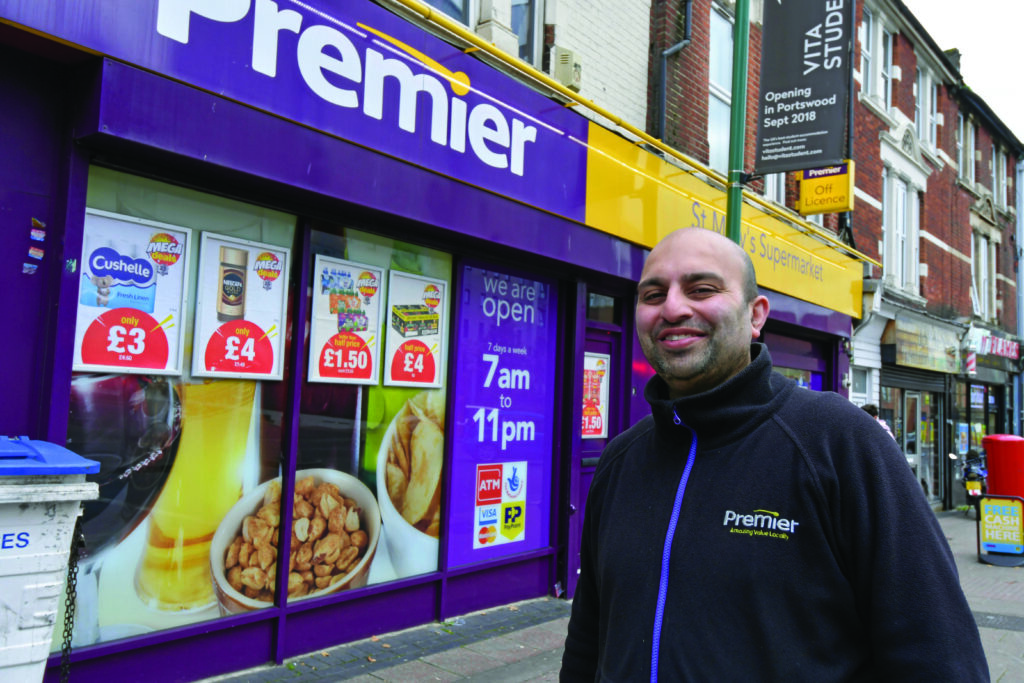This past year has been a good one financially for the convenience sector, but the months ahead are uncertain at best, while the tax itself it set to rise from 19% to 25%. Caution is probably advisable this year.
“People have probably got away with it a bit more in Covid-19 with increased spend and footfall,” says David Sellers, from Nisa Local Market Square, Sheffield. “But time passes and people haven’t got as much to spend. You’d be better when forecasting to stay within 5% of what you did last year. I don’t think anyone’s planning to grow their sales.”
The job market looks uncertain and Brexit could bring about rises in import rates, which could be passed onto retailers and their customers. The recent budget saw corporation tax rise from 19% to 25%, albeit not at once, but it will affect companies with more than £50,000 profits, affecting many retailers. However, there are also shoots of regrowth. The budget promised no duty increases, business rates reductions, lower than expected minimum wage increase and grants for struggling businesses. Sporting occasions are set to happen and the majority of people likely to holiday in the UK if international travel remains restricted. This might encourage stores in coastal regions, for example.
“Sit tight for six months and see where we are,” says Sellers. “Keep some money in the bank for any eventuality because you’ll have to pay the VAT man whether you have the money or not.”
There are so many financial considerations to be made these days, such as pension contributions, maternity cover and sick pay. It can be advisable to turn to an accountant. Meten Lakhani, from St Mary’s Supermarket in Southampton, does his tax returns himself, but when it comes to pensions and payroll, “it’s better when it’s professionally done”.
Declare everything and embrace debt
David Sellers, from Nisa Local Market Square, Sheffield, prefers to have debt to cash in the bank, as he considers it essential for growth and he is in the process of buying his third store. “We’ve raised debt to buy new stores and we keep an eye on it. I’ve got the best deal I could get, but it might not be the best I’ll get in a year’s time. It pays to be sensible and not worry and not worrying about raising from debt and restructuring.”
Additionally, while he can see the value in reducing one’s annual tax bill through clever accounting and using new EPoS technology, he advises a longer-term strategy and declaring everything. “I understand why you’d hide things so you don’t have to pay the tax. But declaring everything is better because your business is then more valuable and easier to sell,” he says. “You’re far more vulnerable if you’re not straight with your accounts.”
Look for support and guidance

New Trade Order Broadway Convenience Store, Oxgangs, Edinburgh. Dennis and Linda Williams Oct 19 2018
For Dennis Williams of Broadway Premier in Edinburgh, it’s important for independent retailers to know they have people and organisations to
turn to if they need financial guidance. “The Association of Convenience Stores, the NFRN, and the Scottish Grocers’ Federation if you’re north of the border can all
give you financial advice,” he says.
Additionally, it’s worth looking out for incentive programmes that can come from your symbol group, or the government. With help from government-backed initiative
Zero Waste Scotland, Williams was able to buy more energy-efficient chillers with a 0% loan. When it comes to day-to-day finances, Williams benefits from a long-standing relationship with an accountant, but he has observed how much easier it has become for shopkeepers to track their own accounts.
“There are loads of different systems now, and they’ve all got their own benefits. You want to get as much done as possible through an
app nowadays, because everyone uses their phones.”
Get an accountant in
For many retailers, managing the financial side of the business can be a daunting challenge. For the sake of peace of mind, and to ensure you’re not making any costly errors, it is often better to get a professional in to do the hard work for you, as Gareth Cass, from Baxters News, Dartford, Kent, does.
“It does cost more than doing it yourself, but it saves you the hassle,” he says. “My accountant does most of it for me. We take the sales details and the invoices and I give them a breakdown of any other information they need and they tell me what I need to pay for VAT and payroll and things like that, as well as the links and transfers that I’ve got to do.” Cass expects this year will far harder to guess and forecast, but that’s what he pays the accountant to do.
“If you’re good at finances then you could save the money, but then you’re liable to make mistakes,” he says.
Spend money to save
Money needs to be invested into a business into order to keep things in shape, but it also reduces the business’s overall profits and therefore its overall tax bill. Meten Lakhani had planned a refit for 2020 that the pandemic made impossible. This year, with rising corporation tax likely to affect his business, he’s investing now.
“You’ve got to take that 130% tax rebate that they’re giving out on investments in the business. Whether it’s improving your EPoS or other equipment, you’ve got to be clever to make sure that you keep your business running and reduce your tax liabilities. This budget could batter businesses. Last year, we were slightly over our threshold so our accountant advised us to either spend that money or pay ourselves a bonus.”
Lakhani uses an accountant but also files his own tax returns. This gives him a greater understanding of his business as a whole.
Don’t be too ambitious with your forecasts
Gerald Thomas, from Arcade News in Ammanford, Carmarthenshire, has used digital software for the past 10 years, which readied him for the recent move to online tax returns. “I use Intuit Quick Books online and I’ve got my own spreadsheet and I submit that to my accountant.”
Thomas is wary of making forecasts, especially overly positive ones, as it binds his business to them and mounts pressure on his team. “When I worked at other companies where we had to do forecasts, we would never achieve those forecasts, which would lower morale,” he says.
“I always say that whatever we get in is good. I’m happier doing it like that, rather than being bound by forecasts. Because turnover is roughly the same every year, you know roughly where you’re sitting.”
Top tips for handling financials
CONSIDER A PROFESSIONAL: There is a cost to hiring an accountant, but compared with the cost of errors on your tax returns and the time and energy spent handling it yourself, it may be worth it.
BE CAUTIOUS THIS YEAR: Businesses are set to be hit hard by this budget, while the end of the pandemic and growing Brexit implications will also have potentially negative effects. It’s not time for doom and gloom, but avoid being overly optimistic in your forecasts.
INVEST IN YOUR BUSINESS: Investing money can not only provide improvements that can make more money in the future. By investing, you are reducing your overall profit and thus your tax bill.
DON’T TRY TO BE TOO CLEVER: It can be tempting to hide as much as you can from the taxman, but transparent accounts are not just good for your peace of mind. They will also stand your business in better stead should you ever decide to sell it, or look to buy another.
This piece appeared in the 19 March 2021 issue of Retail News. To get the latest issue, subscribe here







Comments
This article doesn't have any comments yet, be the first!